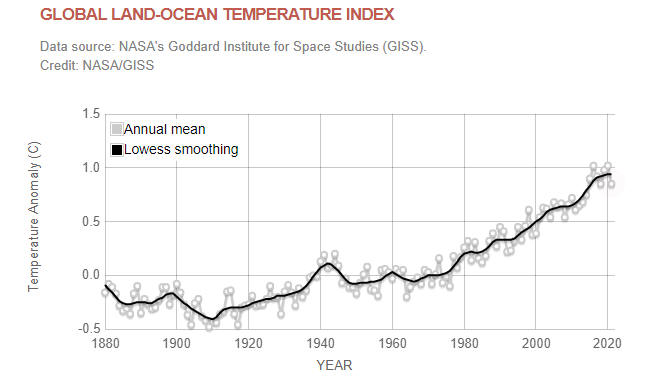
|
||||||||||||
|
|
|
Global Temperatures Earth’s average temperature is about 14 or 15 degrees Celsius or 57.2 to 59 degrees farenheit. Earth’s temperature has risen by 0.14° F (0.08° C) per decade since 1880, and the rate of warming over the past 40 years is more than twice that: 0.32° F (0.18° C) per decade since 1981. The 10 warmest years on record have occurred since 2005. From 1900 to 1980 a new temperature record was set on average every 13.5 years; from 1981–2019, a new record was set every 3 years. Earth’s hottest periods—the Hadean, the late Neoproterozoic, the Cretaceous Hot Greenhouse, the PETM—occurred before humans existed. Those ancient climates would have been like nothing our species has ever seen. Modern human civilization, with its permanent agriculture and settlements, has developed over just the past 10,000 years or so. The period has generally been one of low temperatures and relative global climate stability. Compared to most of Earth’s history, today is unusually cold; we now live in what geologists call an interglacial—a period between glaciations of an ice age. But as greenhouse-gas emissions warm Earth’s climate, it's possible our planet has seen its last glaciation for a long time.
This graph illustrates the change in global surface temperature relative to 1951-1980 average temperatures. Nineteen of the hottest years have occurred since 2000, with the exception of 1998, which was helped by a very strong El Niño. The year 2020 tied with 2016 for the hottest year on record since record-keeping began in 1880 (source: NASA/GISS). CREDIT:NOAA National Climatic Data Center, State of the Climate: Global Analysis for Annual 2010, published online December 2010, retrieved on November 9, 2011 from http://www.ncdc.noaa.gov/sotc/global/2010/13. |



